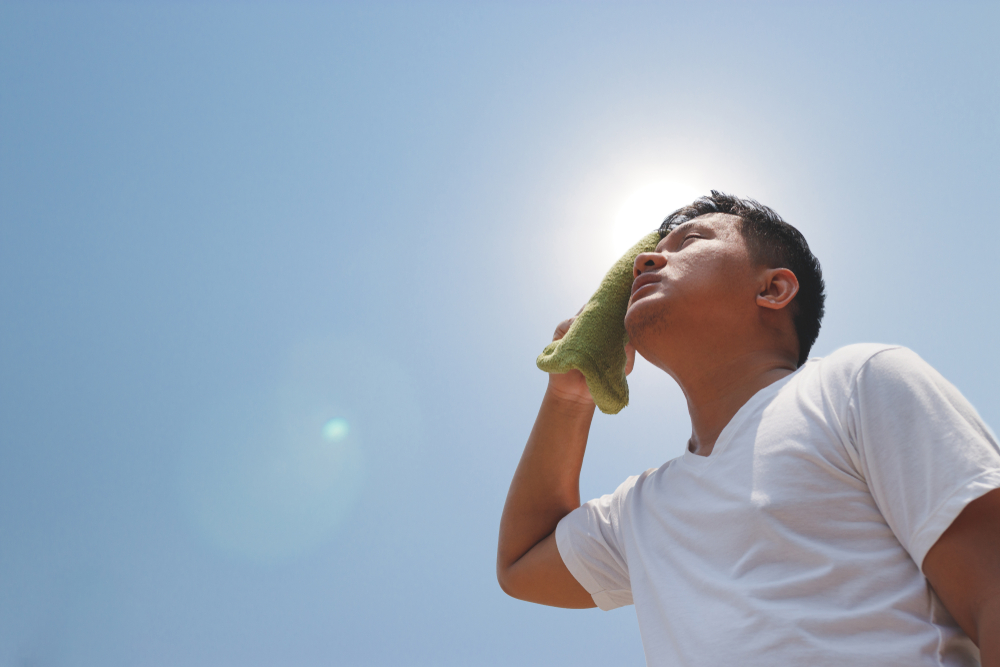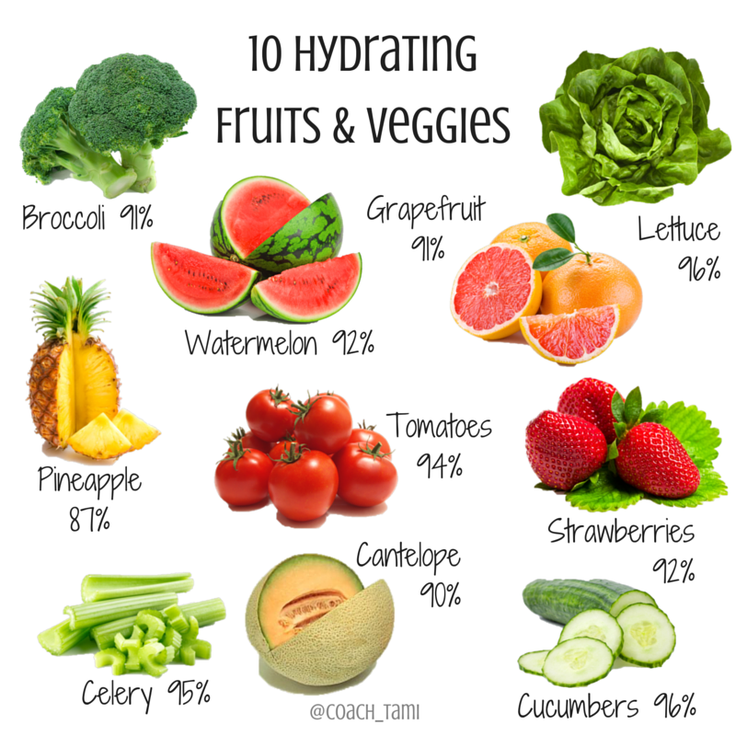You drink a lot of water yet still feel dehydrated. Why?

What Is Dehydration?
There are actually several types and levels of dehydration:
Dehydration is defined as the excessive loss of bodily fluids. In other words, it occurs when the body needs more fluids than are being consumed in order to function normally. The bodily fluids that are lost and desperately needed during dehydration are either water (H2O), one or more electrolytes, or commonly a combination of both.
Electrolytes are substances that become ions in a solution and are able to conduct electricity. They’re present throughout the human body and essential for normal functioning of all organs and cells. Electrolytes are required at specific levels in the body to carry electrical signals, help keep the pH balanced and maintain critical functions like heartbeat rhythms. The main types of electrolytes found in the body are calcium, sodium, potassium, chloride, magnesium and bicarbonate. Out of these electrolytes, potassium, sodium and chloride ions are considered the “most essential” electrolytes in regard to hydration.
Some parts of the body are more “electrically wired” than others, so they require higher amounts of these important ions (electrolytes). The body parts that most rely on proper electrolyte balance and hydration, and are therefore especially prone to damage caused by fluid loss, include the brain, central nervous system and muscular system.
About 60 percent of our bodies is composed of water, while 75 percent of our muscles and 85 percent of our brains are made up of water.
Our body naturally helps balance electrolyte and water levels when we drink normal amounts of fluids. We become thirstier, for example, when we require more water and urinate more often when we can afford to lose excess water and electrolytes. Electrolytes and water are found in our daily diets in things like fruits and veggies — for example, potassium is found in bananas and spinach and calcium in leafy greens and dairy. Sodium and chloride ions are mainly provided by table salt (usually labeled sodium chloride) but are also naturally found in other foods too, such as meat.
Here’s an overview of the role that different electrolytes have and how they can contribute to dehydration:
Sodium is a positive ion on the outside of cells. Too much sodium can cause a type of dehydration called hypernatremia. High sodium intake is a big concern for people eating a “typical western diet” or what many refer to as the Standard American Diet, which includes many packaged foods.
Potassium is a positive ion found on the inside of cells. It plays a critical role in regulating heartbeat and muscle functions. A deviation in potassium levels, either higher than they should be or lower than the body requires, can adversely impact the heart rhythm and cause changes in blood pressure. Many people are low in potassium, which is made worse by consuming lots of sodium.
Chloride is a negatively charged ion found outside of cells in the blood. It aids the body in balancing other fluids. A significant increase or decrease in chloride levels in the body can lead to serious health problems, including death.
Magnesium is needed for muscle contractions, proper heart rhythms, nerve functioning, bone-building and strength, reducing anxiety, digestion, and keeping a stable protein-fluid balance. That’s why magnesium deficiency is harmful and can lead to dehydration symptoms.
Bicarbonate ions act as a buffer and help the body maintain proper pH levels (the ratio of acid to alkalinity).
A variety of hormones control the activity and concentrations of electrolytes in body. Electrolytes are mainly secreted in the kidneys and adrenal glands. They’re controlled by hormones, including rennin, angiotensin, aldosterone and antidiuretic hormones.
Dehydration symptoms can include dizziness, shakiness, constipation, headaches, increased thirst, dark-colored urine, irritability and trouble concentrating.
Complications due to dehydration can include kidney damage, heart problems, fainting, trouble seeing, falling due to loss of balance and even seizures.
 |
What Causes Dehydration?
There are three main types of dehydration depending on the specific fluids that are lost:
Hypotonic or hyponatremic: The loss of electrolytes, mostly sodium
Hypertonic or hypernatremic: The loss of water
Isotonic or isonatremic: The loss of both water and electrolytes
Any of these three types of dehydration can be mild, moderate or severe. Mild is when the body has lost about 2 percent of its total fluids, moderate is the body losing 5 percent of total fluids and finally severe dehydration is when the body has lost about 10 percent of its fluids. Severe dehydration, as you can probably guess, is considered an emergency.
Dehydration can happen for all sorts of reasons, from eating a poor diet to becoming sick.
The people most at risk for dehydration symptoms include:
Children and infants: An infant’s fluid exchange rate is seven times greater than that of an adult, and an infant’s metabolic rate is two times greater relative to body weight. These factors influence fluid levels, as does many children’s hesitancy to drink enough plain water.
The elderly: Older people often don’t eat enough or drink enough water. Sometimes they lose the ability to feel thirsty or become accustomed to experiencing symptoms of dehydration.
Anyone who is chronically ill, especially if the illness involves vomiting or diarrhea: It’s been found that vomiting patients likely have both restricted intakes of water and also losses of electrolytes through vomit itself.
People recovering from surgeries or viruses, in which they might not be drinking enough water due to not feeling well
Endurance athletes
High-altitude dwellers
Those living or working in very hot, humid conditions: The daily water requirements for temperate conditions can double or even triple in very hot weather.
Farmers, miners, military personnel, construction workers, fire fighters, forest workers, park and recreation employees, and industrial personnel are often highly physically active at work and have been found to experience higher rates of dehydration.
Anyone sweating a lot or who has high fevers, which can produce extra fluid loss
Eating a poor diet that’s low in essential nutrients from whole foods
Having digestive issues that block normal absorption of nutrients from foods (9)
Those with hormonal imbalances and endocrine disorders, which can affect urination
Anyone taking certain medications, including those used to treat cancer, heart disease or hormonal disorders. This can include people taking antibiotics, over-the-counter diuretics or corticosteroid hormones.
Those with kidney disease or damage: The kidneys play a critical role in regulating chloride in your blood and “flushing out” potassium, magnesium and sodium.
Chemotherapy patients: Treatment can cause side effects of low blood calcium or calcium deficiency, changes in blood potassium levels, and other electrolyte deficiencies.
Precautions Regarding Dehydration Symptoms
Although dehydration is dangerous for anyone, infants/children and anyone recovering from serious illnesses should be monitored for dehydration symptoms carefully. If urination stops or becomes very infrequent, it’s time to see a doctor right away.
Older adults and those who are sick can quickly become dehydrated due to age-associated and inflammation-related physiologic changes. These can include nutrient impairment, thirst impairment, incontinence, reduced mobility (constipation) and confusion. Both infants and older adults sometimes limit voluntary fluid intake, and this can increase the risk of dizziness, falls, urinary tract infections, dental disease, kidney stones and chronic constipation.

Natural treatments for dehydration include drinking water throughout the day (or other hydrating beverages), avoiding alcohol and too much salt or caffeine, consuming more hydrating fruits and veggies, and refueling with extra electrolytes during/after exercise or times of illness./.
( Jillian Levy )
Recommended
 Handbook
Handbook
Vietnam Moves Up 8 Places In World Happiness Index
 Handbook
Handbook
Travelling Vietnam Through French Artist's Children Book
 Multimedia
Multimedia
Vietnamese Turmeric Fish among Best Asian Dishes: TasteAtlas
 Handbook
Handbook
From Lost to Found: German Tourist Thanks Vietnamese Police for Returning His Bag
Popular article
 Handbook
Handbook
Prediction and Resolution for the Disasters of Humanity
 Handbook
Handbook
16 French Films To Be Shown For Free During Tet Holiday In Vietnam
 Handbook
Handbook
Unique Cultural and Religious Activities to Welcome Year of the Snake
 Handbook
Handbook



